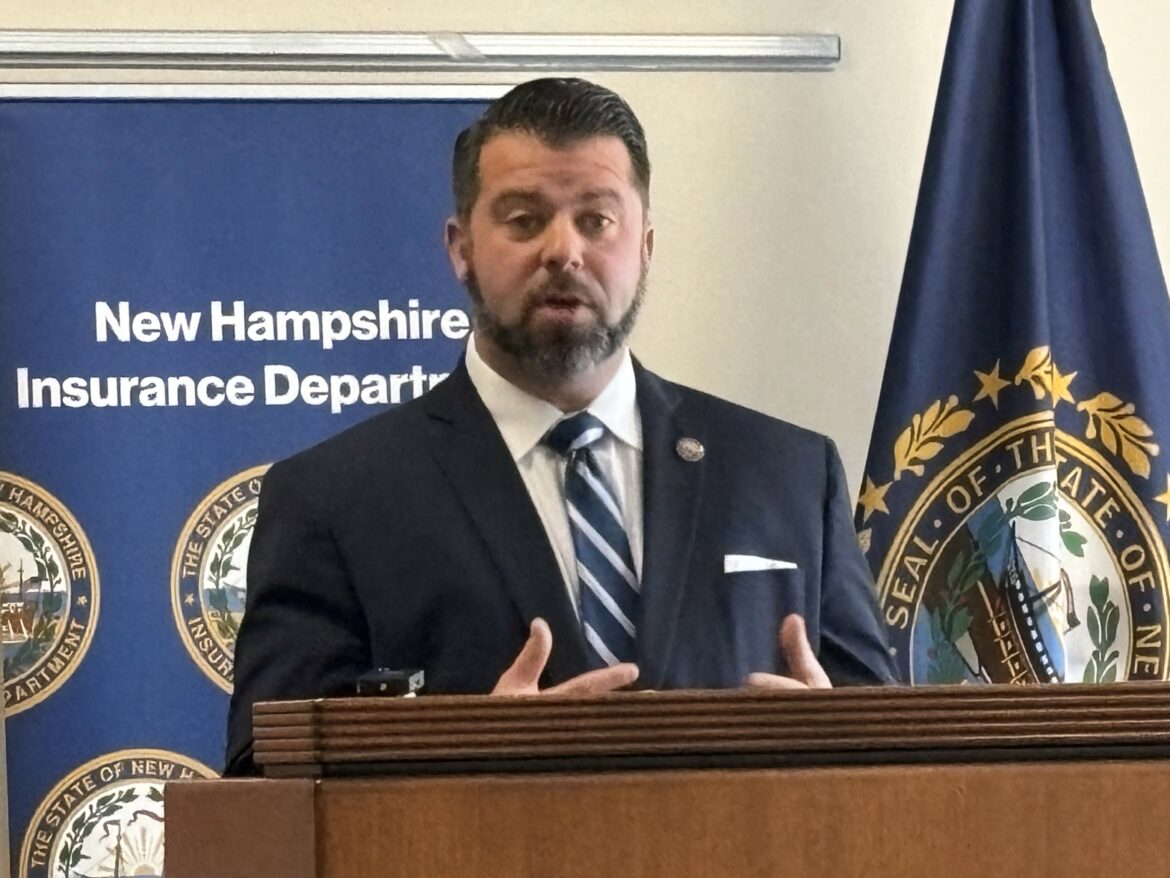By PAULA TRACY, InDepthNH.org
CONCORD – A healthcare cyberattack one month ago that impacted half of all medical claims in the United States was the subject of a press conference Tuesday at the New Hampshire Insurance Department with the department urging providers to call them because “we can help you.”
The message from Insurance Commissioner D.J. Bettencourt to health-care providers particularly for rural doctors, single practice mental health-care providers, pharmacies and others is to contact them if they are on the brink of closing the doors due to this cyberattack.
The Feb. 21 incident which impacted Change Healthcare is having significant impacts across the nation as well as the Granite State, said Bettencourt.
Two major issues yet to be assessed, he said, are how much advance payments have been sent out to providers for reconciliation later, and to what extent privacy data has been breached.
Change Healthcare is a subsidiary of United Healthcare Services, Inc. and a sister company to UHIC Holdings Inc., the holding company for UnitedHealthcare Insurance Company.
The company supports tens of thousands of physicians, dentists, pharmacies, and hospitals, handling 50 percent of all medical claims in the United States.
Press reports indicate Black Cat, likely in Russia, is believed to have seized data in the attack and asked for a ransom payment.
“The next few weeks, some of the systems should be coming back online. That is the good news,” said Bettencourt. “The not-so-great news” is that last week he and Deputy Insurance Commissioner Keith Nyhan attended the National Association of Insurance Commissioners.
“I would characterize the result of that meeting as being ‘unsatisfying,'” Bettencourt said.
“There remain a number of concerns that me and my fellow commissioners across this country continue to have. A couple of those key issues are that the presenter stated that $1.9 billion had been made available as relief funds subject to reconciliation at a later date. However, they were unable to give any context for this number, such as how it compares to the payments that have been disrupted.
“And therefore, without that information it is impossible for us to assess the adequacy of this response,” Bettencourt said.
In New Hampshire, he said he has been hearing that the relief programs that have been made available frequently contain formulas that are excluding a large number of hospitals and providers.
“That has obviously been unhelpful,” he said. He said particularly impacted, he fears, are the smaller more rural providers.
Bettencourt added that it is unclear the extent to which personally identifiable information has been breached by the cyberattack.
“Here in New Hampshire, we are obviously a state that values and protects privacy rights very stringently so that is particularly a concern to me,” he said. More information may be made available as to the extent of that aspect of the breach once systems are back up.
There were also unanswered questions about advanced payments particularly for those providers who are in the most dire need, he said.
Also unknown is what will happen once the systems are restored and turned back on, and how this will be prevented in the future.
“What is the backup plan?” he said.
And finally, Bettencourt asked what is the situation with prior authorizations.
“I have great concern here because when you are talking about prior authorizations you are talking about the patients’ ability to get critical services that they need. It is literally a life and death proposition. And while Change has made several changes to their prior authorization for government programs they have not, to my knowledge, made appropriate adjustments for the commercial market and I think there needs to be a plan put in place immediately to address that.”
He said the official for the company in New Hampshire has been “phenomenal” to work with, and he has made it clear that he will work very closely with the department to address any issues that consumers and providers are having.
“So that is the key takeaway that I want to leave with you this morning and that is if you are a provider in New Hampshire that is significantly struggling financially or is unable to provide care to patients in a timely manner, do not wait or hesitate to reach out to the department. We are happy to be the conduit for you to get in touch with officials at UHC and Change who can help you but there is no need for you to struggle and suffer when we have the ability to intervene and to help you. And so what we are trying to do this morning is to elevate that message to make it clear that we can help you.”
Contact the New Hampshire department of insurance at 1?800?852? 3416 or (603) 271?2261, or by email at consumerservices@ins.nh.gov. For more information, visit https://www.nh.gov/insurance.
Paula Tracy is InDepthNH.org’s senior writer who has 30 years of reporting experience.






